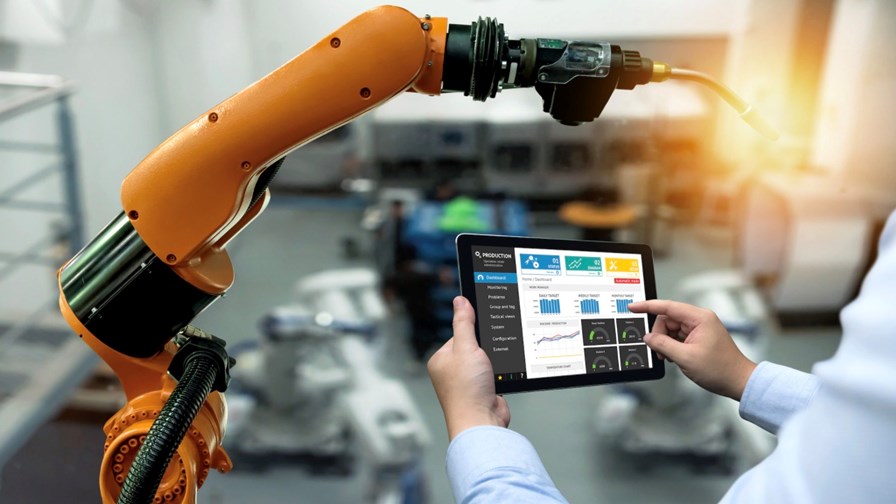
- One of the world's biggest steel makers to deploy private 4G/5G networks in France
- Ericsson and Orange Business Services will provide the kit and co-develop several industrial use cases
- But the looming RAN chip shortage could cause havoc to this three-year plan
Ericsson and Orange Business Services (OBS) hope to forge a strong relationship with ArcelorMittal after the steel maker picked them for its private mobile network rollout.
The three-year project, aptly dubbed '5G Steel', aims to deliver 4G/5G coverage to three ArcelorMittal sites in France. The deployment will kick off at ArcelorMittal's facility in Dunkirk before moving on to its plant in neighbouring Mardyck. The third phase of the rollout will take place at a plant in Florange near the border with Luxembourg. The aim is to blanket each location with high-throughput, indoor and outdoor coverage.
This is a big win for Ericsson and Orange given the size of ArcelorMittal. It has 40 sites in France alone, and is the largest steel manufacturer in Europe and the Americas. In Europe, its 70,000 employees helped produce 34 million tons of crude steel last year.
ABI Research predicts private network revenues will reach $64 billion by 2030, with demand from heavy industry contributing $32.38 billion. The analyst firm claims that in the wake of the pandemic, enterprises in industrial manufacturing, logistics, oil and gas are accelerating their digitalisation plans to reduce their reliance on manual labour and protect their businesses against unexpected supply chain disruption. On the systems integration side of things, ABI expects the industrial and manufacturing sector to spend $32 billion per year on application enablement platforms (AEPs) by 2025.
With all this taken into account, it is easy to see why this ArcelorMittal partnership holds such potential for Ericsson and Orange.
"ArcelorMittal is firmly committed to its digital transformation and is positioning itself as a leader in the digitalisation of the steel industry. In production, maintenance, logistics and development, digital technologies have already begun to transform our processes, increase the reliability of our operations and improve the comfort and safety of our teams," said David Glijer, director of digital transformation at ArcelorMittal France, in a statement.
The deal announced on Wednesday will see Ericsson supply the networking equipment and OBS provide integration services. They will also co-develop several industrial use cases that will be put through their paces by ArcelorMittal over the course of the project.
One of the use cases, autonomous vehicles, will see ArcelorMittal put a driverless train into service on its private rail network in Dunkirk. This particular site has 44 kilometres of track for transporting product between different stages of manufacture. ArcelorMittal is also working on an autonomous, heavy-duty road vehicle capable of carrying up to 120 tons of steel coils.
ArcelorMittal also wants to try out remote maintenance, equipping teams with tablets to give them ready access to manuals, and giving them the means to call up an expert when needed.
"We are delighted to support ArcelorMittal in its digital transformation project," said Valérie Cussac, EVP, smart mobility services at OBS. "Within the framework of 5G Steel, we have worked with a use case approach. The project is co-piloted with ArcelorMittal using an agile method based on the collective intelligence of technical and functional experts. In addition, thanks to our dual expertise as an operator-integrator, ArcelorMittal will benefit from this solid private network, allowing maximum and secure critical data performance and improved productivity."
However, one or two dark clouds on the horizon could make for a bumpy ride for our three intrepid private networkers.
As Dell'Oro noted yesterday, the ongoing chip shortage is starting to squeeze the radio access network (RAN) market, and that could well have negative consequences for private network deployments. (See Chip shortage to put brakes on RAN market in 2022: Dell’Oro.)
The research firm predicts that those supply chain issues mean the 2G-5G RAN market will grow by just 3 percent next year, compared to the double-digit growth expected this year.
With that in mind, Ericsson, Orange and ArcelorMittal might need steely determination [Editor’s note: Possibly a pun too far...] to see this project all the way through to completion.
- Nick Wood, reporting for TelecomTV
Email Newsletters
Sign up to receive TelecomTV's top news and videos, plus exclusive subscriber-only content direct to your inbox.




